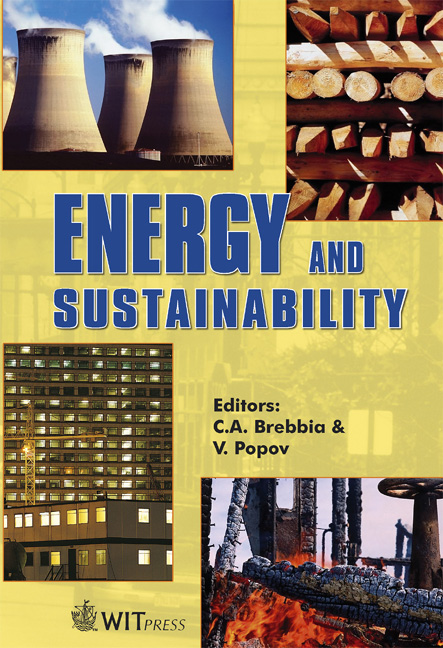Synergy Between Exergy And Regional Planning
Price
Free (open access)
Transaction
Volume
105
Pages
10
Published
2007
Size
1,215 kb
Paper DOI
10.2495/ESUS070111
Copyright
WIT Press
Author(s)
L. Gommans & A. van den Dobbelsteen
Abstract
The realisation of a sustainable energy supply is an essential condition for achieving sustainability in society. About 30-40% of world energy is used in the built environment. In the past, energy-saving efforts were aimed on the one hand at reducing energy demand (e.g. improved insulation) and improving energy efficiency (e.g. high-performance gas heaters). On the other hand, effort has been put into the development and implementation of sustainable energy technology. Innovations on energy systems at a scale surpassing that of individual buildings have received relatively little attention. The current system of energy supply and use under-utilises the local and regional potential for self-sufficiency. Highquality energy is still often used for energy conversion processes requiring only low-quality energy. Instead of aiming for low energy losses in such processes, it may be more effective in terms of sustainability, to minimise exergy losses. A key objective of a low-exergy approach in a cascade of energy conversion processes is to minimise the amount of primary energy used by minimising exergy losses at each stage. Until now the low-exergy approach has been studied at the level of individual appliances or at most at single-building scale. However, given the potential of the total energy chain, exergy use should be implemented on a regional scale. This creates new opportunities for energy-savings. This paper gives examples and possibilities of a low-exergy approach at a regional scale that can lead to further energy-saving gains. Keywords: energy, exergy, cascading, local potentials, waste energy, regional planning, energy transport, energy storage, energy conversion.
Keywords
energy, exergy, cascading, local potentials, waste energy, regional planning, energy transport, energy storage, energy conversion.





